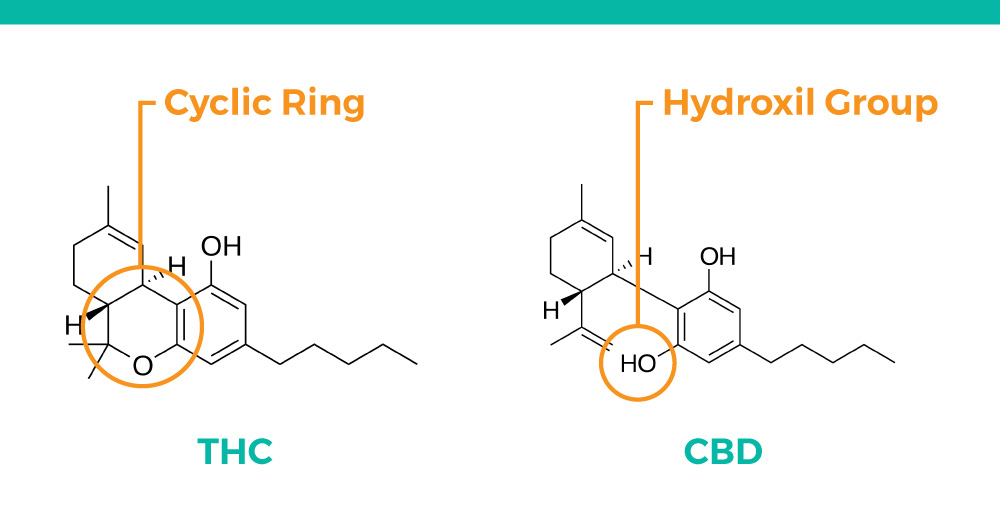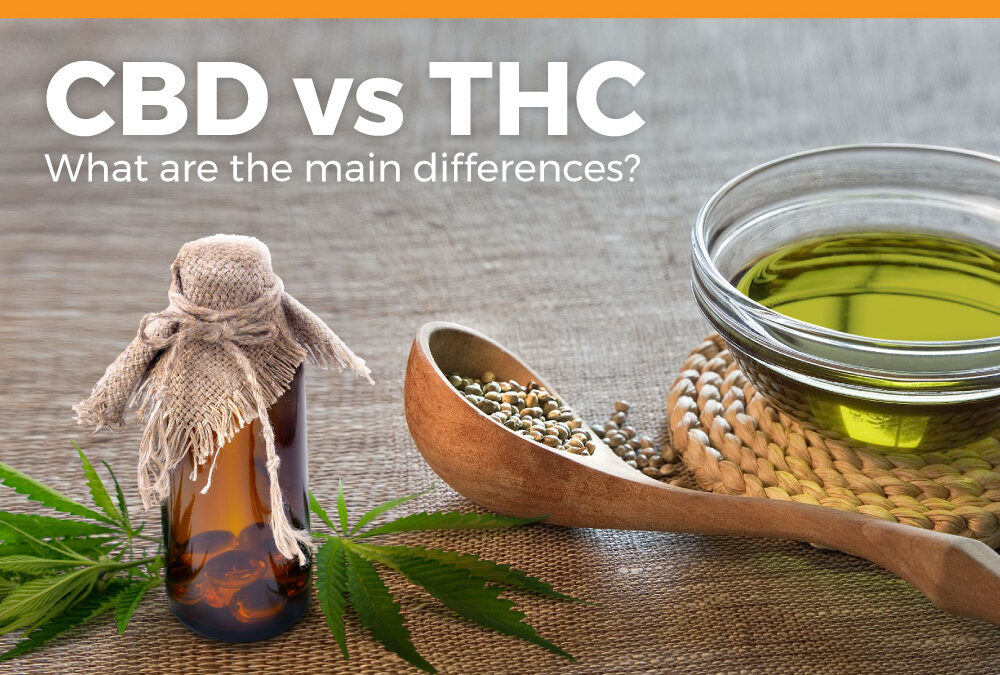CBD Stands for Cannabidiol
It is one of many cannabinoids identified in cannabis plants. THC (short for Tetrahydrocannabinol), is another one of these cannabinoids. Both can be extracted from cannabis plants such as marijuana or hemp. Simply put, THC is the main psychoactive compound in marijuana. It’s the part of the plant that gets you high. It’s usually consumed directly through smoking marijuana, but can also be taken on its own in the form of THC oils, THC edibles, THC tinctures, THC capsules, or THC insulates.
CBD, on the other hand, is famous for containing very few psychoactive elements, which means that none of the mind-bending aspects of marijuana are experienced while taking CBD. It is also becoming popular in the Canadian wellness community because of its all-round benefits on mental and physical health. In other words CBD doesn’t get you high, but you are still able to benefit from the soothing effects of cannabis. And, just like THC, it is easily consumable in the form of CBD oils, CBD edibles (for humans or pets), CBD tinctures, CBD capsules, CBD insulates, and more.
Because they ultimately originate from the same kind of plant, CBD and THC are intimately linked on several levels, be it molecular, medical, or even in terms of legality. Here’s a list of their main differences and similarities…
Chemical Structure
The chemical structures of these two compounds is remarkable. CBD and THC have the exact same molecular formula; 21 carbon atoms, 30 hydrogen atoms, and 2 oxygen atoms. They are practically identical twins. The difference between the two lies solely in the positioning of a single atom. THC contains a cyclic ring whereas CBD has a hydroxyl group. This small difference is what gives them entirely different pharmacological properties.

Legality
The legalization of marijuana in Canada has ushered a new era of often-changing regulations concerning the usage of cannabis related substances. CBD and THC both find themselves in somewhat of a legal gray area. However, it’s important to note that because it is mainly extracted from marijuana plants, THC tends to fall under more intense scrutiny than CBD, which is often grown from (perfectly legal) hemp.
CBD = Non-Psychoactive
Because it does not bind any of the cannabinoid receptors present in the human nervous system, CBD does not produce any of the psychotropic effects associated with cannabis. In fact, it even alters the shape of these receptors, making them more difficult to stimulate. THC on the other hand binds itself to these receptors and stimulates them greatly, leading to psychotropic effects. In other words, THC will get you high while CBD will actually sober you up. This is one of the reasons people don’t feel as euphoric when using CBD-rich cannabis compared to when they consume products high in THC.
Medical Benefits
CBD is gaining in popularity all across Canada because of its numerous effects on one’s mental and physical health. It has been mainly used to reduce chronic pain and inflammation in the joints, and ease the symptoms of multiple sclerosis, post-traumatic stress disorder, panic disorder, obsessive-compulsive disorder, social anxiety disorder, and depression. It has also been found to alleviate the violence of epileptic convulsions, side-effects of cancer-treatment (such as nausea, vomiting and pain), and even acne.
THC, though it shares some of the health benefits associated with CBD, has mainly been used to ease discomfort in a more general sense. THC can help reduce nausea, insomnia, low appetite, anxiety, pain, muscle spasticity, and symptoms of glaucoma.
Side Effects
Most people receive the ingestion of CBD very easily, but its possible side effects include tiredness, diarrhea, changes in appetite, weight loss or weight gain. It is also important to note that using CBD with other forms of medication may have an impact on the medication’s effectiveness.
THC has more pronounced side-effects. They include an increased heart rate, dry mouth, red eyes, coordination issues, slower reaction times, and memory loss. These side-effects are due to the psychoactive elements in the THC and are all temporary. Studies have also shown that an excessive consummation of THC may lead to negative psychiatric effects in the long-term and increases the likelihood of developing serious psychiatric disorders such as schizophrenia.
![]()
When all is said and done, CBD is an easy, healthy and organic way for one to alleviate symptoms of physical or mental discomfort without experiencing any of the psychoactive elements traditionally associated with cannabis.



